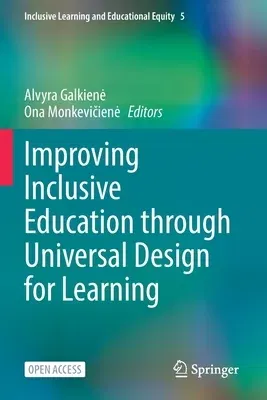This open access international scientific study provides an analysis of
how the educational strategy of Universal Design for Learning can
stimulate the process of inclusive education in different
educational-cultural contexts and different areas of the educational
system. The findings of the research deepen the conception of inclusive
education and present an analysis of factors that are significant for
developing the educational system as well as providing evidence-based
recommendations for educational practice.
The research for this work was done in four European countries with
various historical-cultural contexts: Lithuania and Poland underwent a
transformation of the educational systems at the turning point in their
political system, shifting from a strictly centralized Soviet policy to
a liberal and democratic education system; Austria has experienced
changes in social stratification and a need for cultural harmonisation
arising from active national migration processes, whereas Finland has
been gradually developing a socio-democratic model of national welfare.
The analysis of the educational processes in the four countries has been
performed using a qualitative action research method. The researchers,
in cooperation with the teachers from the selected schools in their
country, have implemented the strategy of Universal Design for Learning
and assessed its transformation indicators in terms of the quality of
inclusive education components.

